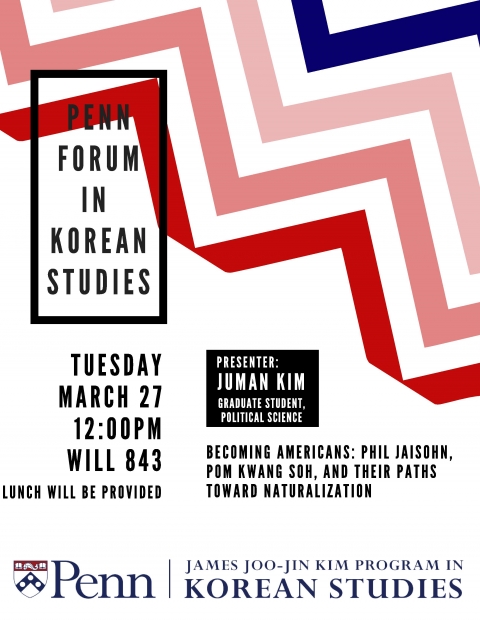
Williams Hall 843
The Naturalization Act of 1870 extended the naturalization process, which had hitherto been restricted to "white persons," to "aliens of African nativity and to persons of African descent." This certainly marked the progressive moment in US history, but not for all racial minorities. In this essay, I examine how racial discrimination against Asians took shape through a variety of institutional efforts during the Gilded Age and the Progressive Era, and chart the strategies through which Asian immigrants strove to achieve American citizenship within an unfavorable legal, political, and ideational context. I pay special attention to two Korean immigrants, Phil Jaisohn and Pom Kwang Soh, who have been considered as the very first Korean Americans by naturalization. Probing into their paths toward American citizenship, I also highlight a number of conundrums often overlooked by both Korean and American scholars.
 James Joo-Jin Kim Center for Korean Studies
James Joo-Jin Kim Center for Korean Studies